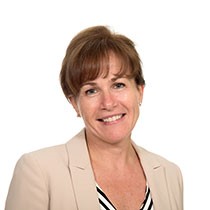02/11/2012
Joanna Lloyd, puts a number of questions to the new Chief Executive of the NHS Litigation Authority, Catherine Dixon. Catherine was previously General Counsel and Company Secretary at the NSPCC, working as part of the Executive Team. Before that she worked as a Director of Vancouver Coastal Health Authority in Canada and as Commercial Director at Bupa Care Services. She is a solicitor and has an MBA.
As the newly appointed Chief Executive of the NHS LA, what surprises you most about the work of the NHS Litigation Authority?
I cannot say that I was surprised, however, I was extremely impressed by the high level of competence and expertise within the NHS LA team. This team has dealt with all the claims coming out of the NHS in England for 17 years. Perhaps then, it is not surprising that they are extremely knowledgeable in what is a very complex area of the law.
The NHS LA aims to pay justified claims promptly and fairly and defend unjustified claims robustly. What do you think is the greatest obstacle in achieving these aims?
The NHS has seen a significant increase in the number of claims being made in the last few years. One of its greatest challenges is making sure the organisation has the capacity to deal with the increase, particularly given budget constraints within the NHS. The NHS LA was recently reviewed by Marsh, an independent insurance broker. Marsh recognised the expertise of the NHS LA but also identified that claims handlers had very large workloads. In order to ensure that claims are robustly and rigorously investigated, it’s important to have the capacity within the organisation to achieve this.
The NHS LA needs to provide a value for money service for its membership. What are we doing to ensure this?
The NHS LA has a number of Corporate Objectives. Inevitably these include objectives to ensure continuous improvement in the delivery of service to our members. In addition, the NHS LA is prioritising the following with its membership:
- Ensuring effective consultation and communication with members.
- Ensuring contribution setting is fair and appropriate for individual members which means that we are taking a more sophisticated approach to risk profiling for each of our members.
- That our Risk Management Standards are outcome focused in reducing the cost of claims and that the assessment process is proportionate and appropriate and assists our members by helping them drive the right behaviour in their organisations towards reduction of claims.
- Ensuring the NHS get better at learning lessons from claims and
that we are getting messages out to our members on how to improve
patient and staff safety by reducing the number of claims.
You have publically stated an intention to listen more to Trusts - what progress is being made?
We have met with representatives of approximately 200 trusts to discuss the role of the NHS LA and to get members’ views on our proposals for change and the NHS LA’s service:
- We are providing trusts with their claims information so that they are better informed and can target areas of high claims.
- We are regularly speaking at seminars, workshops and conferences which will enable us to engage with trusts.
- We are working with experts, our trust members, regulators and other key stakeholders to ensure that we develop appropriate standards which are outcome focused and that any assessment is proportionate and appropriate. We have distributed a customer questionnaire to gauge our member’s views on our risk management standards and assessment process so that we can feed this in and make changes.
- We continue to develop our lessons learned and hope that we will be issuing useful publications to assist members learning from claims and particularly high value claims so that we can reduce claims.
The top priorities are:
- Consultation and communication with members
- Getting contributions right for members
- Developing outcome focused risk management standards and an appropriate assessment process for members
- Ensuring lessons learned to improve patient and staff safety and reduce claims are effectively communicated to members
The Marsh report recommends that cause codes be revisited- what's the plan?
We are revisiting our cause codes and taking a revised approach
to coding and the collation of data on our Claims Management
System. The transition needs to be treated with care to avoid any
discontinuity which may lead to inconsistencies when viewing data.
Having said this, work on coding is already well under way and
codes are being mapped to both existing state (for continuity) and
where possible, other coding such as NPSA and DH.
We will also be recording never events which will enable more
effective use of data in the future. We are seeking input from
medical experts (including RCOG in relation to our maternity codes)
our actuaries and other key stakeholders to ensure that we have got
the coding right. We are also looking at best practise elsewhere
and for example, considering the approach taken in Australia which
has developed a robust system of coding.
Who would you sit opposite to on a train?
My partner Sally.
We have heard that you are a keen cyclist, road or bike?
Both – however at the moment the focus is definitely the road. I have just ridden to Amsterdam in 2 days, over 300 miles, 4 countries – mad but for a great cause Scope which is a charity which helps disabled people.
What would be your desert island luxury?
Predictably I must say chocolate, although it needs to be a good quality dark chocolate!


